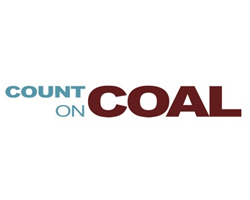Lift the Moratorium on Federal Coal

March 9, 2017 - Coal is declining as a source of power, say critics, because cheap and abundant natural gas is keeping coal in the ground and away from power plants.
Today, coal generates a third of the nation’s electricity, a steep drop from its 50 percent market share when President Obama took office. Coincidence? We don’t think so. Team Obama spent eight years issuing regulation after regulation, piling costs on coal miners and power plants, hobbling coal’s ability to compete with natural gas.
Now that’s changing. Honoring a pledge made in his campaign, President Trump with the help of Congress has already removed the stream rule, one of the costliest regulations aimed at coal communities. Another policy that richly deserves the axe is the current moratorium on new federal coal leases. Imposed in the waning days of the Obama administration, the ban affects production throughout Wyoming, Montana, Colorado and Utah, a region that provides the nation’s largest and growing source of coal, much of it used in power plants in the populous Eastern half of the country.
The moratorium rests on politically contrived reasoning. Team Obama accused coal operators of cheating taxpayers by paying low royalties. This accusation is counter factual. A report prepared by Norwest Corporation revealed that the Secretary of the Interior uncritically accepted incomplete and manipulated data from several advocacy organizations to suggest that federal coal producers pay below market royalties and fees. In fact, Norwest shows that federal coal producers are paying above-market royalty rates as well as bonus bids and other fees that are rarely, if ever, charged on private coal leases.
When all fees and royalties are considered, almost 40 cents of every dollar of federal coal sales from the Powder River Basin goes to the government. This helps to explain why annual leasing revenues in 2015 doubled the amount received 12 years ago.
The moratorium was never about a fair return to taxpayers, and all about capitulating to the demands of the “keep-it-in-the-ground’ movement. From this movement came the second rationale -- the feared impact on global temperatures from burning federal coal. The impact from the volume of coal affected by the federal coal moratorium would be trifling if measurable at all. The entire volume of federal coal produced from the Powder River Basin amounts to a mere 4.7 percent of the world's total production.
Although the volumes of coal affected by the moratorium are too small to reduce global warming, they are not too small to reduce employment prospects here at home. Mining federal coal directly accounts for more than 14,000 high wage jobs with good benefits and supports more than 55,000 jobs throughout coal’s broad supply chain. (MSHA preliminary 2016).
Best of all, lifting the moratorium requires little more than a pen in the hand of Interior Secretary Zinke. A quick way to get the country’s energy policy back on track.
.png)

